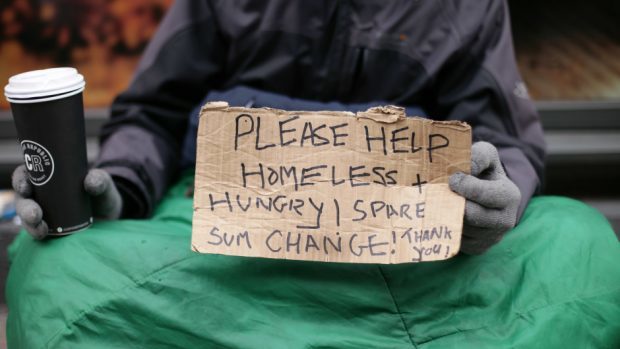A charity that supports homeless Scots in London has been turned down for Scottish Government funding for the second year running.
Borderline previously received money for its core costs from the housing voluntary grant scheme.
But its application for a £59,000 grant for 2017-18 was unsuccessful, the charity has now learned.
A similar request for the 2016-17 year was also denied and to survive in the meantime, it has had to dip into its reserves.
The Scottish Government has, however, invited Borderline to work with officials to better align future applications with its policies.
Chief Executive Shona Fleming said she was disappointed but remained hopeful.
She added: “We remain positive that the Scottish Government have encouraged us to work more closely with policy officials in the hope of a more favourable outcome in the future.
“We will be meeting them in the coming months. In the meantime, we would like to thank the many people who supported us through this process.
“We will continue to explore all available ways of making up the shortfall in income we face, so we can carry on our vital work helping homeless London Scots move off the streets and into secure accommodation.”
The Moderator of the General Assembly of the Church of Scotland, the Right Rev Dr Russell Barr, visited the charity last month.
Dr Barr, who founded Edinburgh-based Fresh Start which helps people who have been homeless make a home for themselves, said: “The streets aren’t paved with gold and being homeless in London is a brutal experience for most people.
“The help that Borderline is able to provide is literally a lifeline.”
Scots are over-represented in London’s UK-born homeless population.
Borderline is the only charity specifically helping Scots – first and second generation – in the English capital.
Ms Fleming said: “I firmly believe the people we are helping here are far more vulnerable in some ways, because they are further away from home.”
A Scottish Government spokesman said: “Applications for Housing Voluntary Sector grants are evaluated in line with whether they fit eligibility and our core priorities, including prevention work around training, employability, tenancy sustainment, financial management, and confidence and resilience building.
“Borderline were not successful in their latest application because, in relation to other applications, they didn’t provide sufficient evidence of this.”
Billy’s story
When Billy was a young teenager he was raped by a family friend.
The abuse continued for two years and he got put into care.
It has affected him his whole life, much of which has been spent on the streets of London.
Raised in Edinburgh, he first travelled south in the early 1990s and ended up homeless for three years.
Then – in a twist of fate – he bumped into an uncle, who took him in and gave him work.
Things began to look up.
He eventually got a full-time job as a live-in barman, met his future wife and they had a daughter in 2001.
But sadly, the story did not end there.
“I started getting flashbacks and panic attacks and I decided to leave my wife and go back to Scotland,” said the 45-year-old.
For the next 13 years, he was in and out of homelessness, both in Scotland and London.
“I started taking thousands upon thousands of Class A drugs … ecstasy, acid, ketamine, GHB, magic mushrooms,” he added.
Billy, who has been diagnosed with post-traumatic stress disorder (PTSD), reveals he could take up to 60 ecstasy tablets a weekend, which ran “from Thursday to Tuesday”, spending about £500 a week on drugs.
This behaviour carried on for some three years before he decided to move back down the road in 2003 when he came close to turning things around again, but ultimately could not.
Then in 2014 he crossed paths with fellow Scot Alex Lavin, the Scottish outreach worker at Borderline.
He helped get him off the streets and into accommodation.
Another charity ScotsCare, which helps Scots in London more widely including people coming out of homelessness, is now funding psychotherapy sessions, which Billy says have really helped him.
He is also now seeing his daughter after 13-and-a-half years and gradually building a relationship with her.
And he has high hopes for the future, having passed his City and Guilds bicycle maintenance certificate and started volunteering so as not to lose his skills.
“If it wasn’t for Borderline, I would be back on the streets,” he says. “Or I would not have even got off the streets.”
